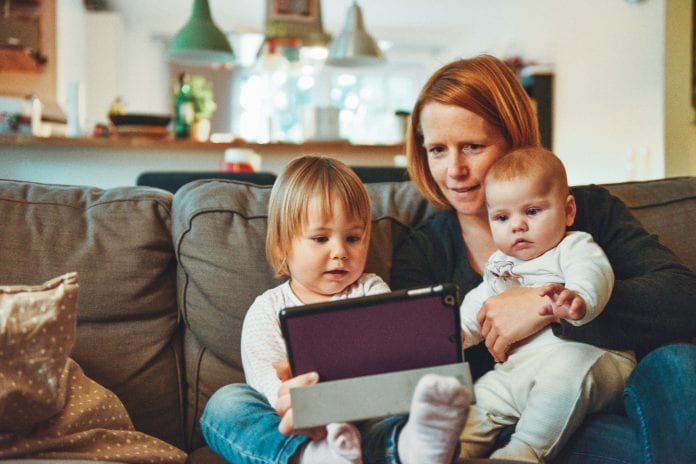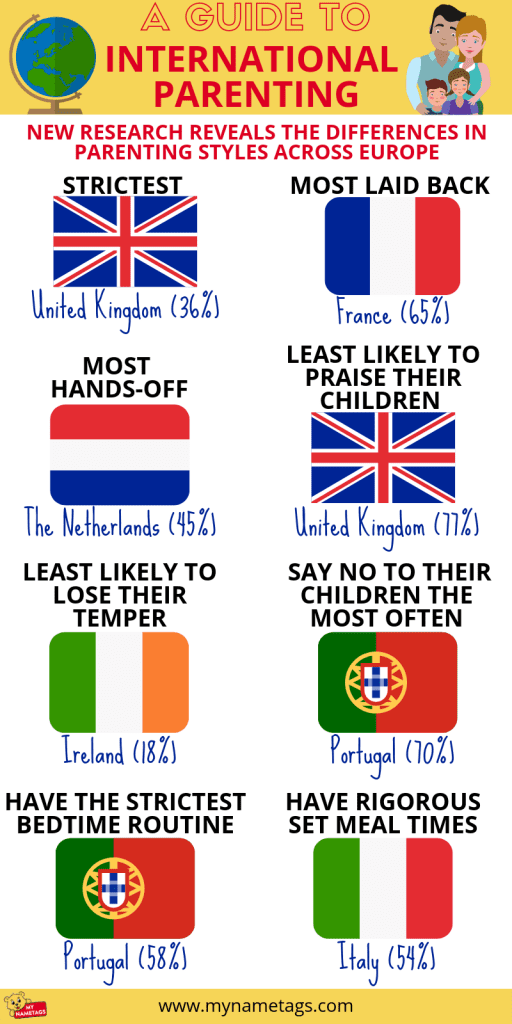International parenting research reveals how parents in Wales compare to the rest of the UK
Parents in Wales are hands-off when it comes to raising their children and are the least likely to stick to strict routines, according to the results of an international parenting study released today.1
Welsh parents are the least likely in the UK to adhere to firm mealtime rules or enforce a bedtime routine on their youngsters. They are also among the most relaxed when it comes to bringing up children, with a third admitting to taking a hands-off approach.
Good manners and being sociable are the traits Welsh parents value the most in their children. In fact, they appreciate being sociable more than any other region in the UK, with a third of parents arguing that this is one of the most important attributes a child can have. Being in touch with emotions and being sensitive are also important to these parents.
Insights into the Welsh parenting style have been released following international parenting research conducted by My Nametags (https://www.mynametags.com), a leading global provider of name tags for children. The company compared the attitudes of thousands of European parents with children aged 16 and under and found that British parents are the strictest in Europe.
When it comes to discipline, Brits believe that educating children on the reason why their behaviour is wrong (42 percent), taking away toys (36 percent) and rationalising with them (29 percent) are the most effective tactics. Over a third are firm in disciplining their children – more than other EU countries.
Parents in the UK are also more likely to resort to star charts and bribery to encourage good behaviour. In fact, while a quarter of Brits use star charts as a form of discipline, this is less common overseas. Only five percent of parents in Italy and Portugal use the same approach.
At mealtimes, 48 percent of British parents expect children to eat ‘grown up’ foods and have good table manners. Over half uphold rigorous bedtime routines, while nearly 60 percent admit to regularly saying ‘no’ to things to teach their children patience.
It seems the British parenting style is most different from those in Italy, where parents are the least strict. In fact, one third of Italian parents admit to not being firm at all with their youngsters.
When it comes to the attributes most valued in children, being respectful (35 percent), good manners (30 percent) and kindness (27 percent) topped the list. Despite being no-nonsense on discipline, British parents are more likely than other countries to choose ‘cheekiness’ as being an important trait in their children. Interestingly, UK parents place much less value on confidence and children being sociable than other countries.
Lars B. Andersen, Founder and Managing Director at My Nametags, said: “We speak to thousands of parents across the world each year who buy name tags for their children, so we were curious to find out more about the varying attitudes and cultural differences in each country.
Every parent will have a different set of values and style of parenting to the next, there isn’t a ‘one size fits all’ approach, but it is interesting to see the part nationality plays in these attitudes. As well as the differences, the research revealed lots of similarities and we know from experience that parents often share many of the same worries, particularly during the busy ‘back to school’ period.”
While British parents may be the strictest, they allow children to be far more independent from an early age compared to other countries, according to the research. Only 70 percent offer children help with everyday tasks – 10 percent less than the rest of Europe. This might explain why UK residents are among the least likely to still live with their parents after the age of 18.2
Italian parents (66 percent) are the most likely to give their children independence, closely followed by those in Ireland (58 percent) and Britain (52 percent). The Dutch, in contrast, are the least likely to raise children that are self-sufficient from a young age, with only 45 percent agreeing to this model of parenting.
Over 60 percent of British parents treat their children as equals. In fact, Brits take a more relaxed approach when it comes to letting children drink at family gatherings in comparison to countries like France, Italy and Portugal. Nearly one in ten have no problem with their children drinking a small amount under their watchful eye, while only two percent of parents from other countries agreed.
Despite taking a more hands-off approach, only 65 percent of UK parents have open discussions with their youngsters – 11 percent less than other countries in Europe.
Brits are the least likely to openly praise good behaviour, preferring to show their approval of good behaviour in other ways. Being affectionate and showing love with hugs is the most popular way UK parents reward their children (42 percent), while treating them to days out (29 percent) and buying them presents (23 percent) also make the list. Parents in the UK are more likely to give children extra pocket money (23 percent) and allow them to stay up late (20 percent) as rewards for good behaviour, when compared to the rest of Europe.
As the proverb goes, ‘it takes a village to raise a child’ and in Britain, parents believe this more than in any other EU country included in the research. Greater importance is placed on the support of family and friends in the upbringing of children. One third of UK parents believe friends and wider family members, such as great aunts and uncles and cousins, should be involved.
This may explain why UK parents are among the least likely to want to spend a significant amount of time with their children. Only 72 percent want to be with their children as much as possible – 10 percent less than the European average.
Bea Marshall, Parenting Expert and Founder of Yes Parenting, said: “When we look at this research what we see is that there are far more similarities than differences. I believe this is because all parents want the best for their child and they will seek to do this to the best of their ability and resources.
“There are two types of demands on all parents no matter which country they are from. The first are ‘necessary’ demands which are the same across all cultures – to protect and nurture our young. The second are ‘desired’ demands which vary according to beliefs and behaviours that we perceive as normal. This is why we see cultural differences in the approaches and attitudes of parents across the research.
“Just because our cultures are different doesn’t mean that the ways this affects our parenting is wrong or right. The fact that more Italian adult children continue to live in the family home is not a sign of better or worse parenting than the Brits, for example, who encourage independence from a very early age. Equally, many European countries have later bedtimes due to midday siestas, so these hold no value as a reward or treat, as used in the UK.”
The most laid-back parents live in France, where 65 percent say they have a very relaxed style. They are closely followed by parents in Ireland – 62 percent of whom believe they are a relaxed parent – while 85 percent are only strict when absolutely necessary.
Despite a relaxed attitude, more French parents are quick to lose their temper when faced with bad behaviour (29 percent), compared to other countries. British parents are also quick to lose their cool, with 28 percent putting their hands up to say they often get angry. In contrast, Irish parents are much more level-headed and are the least likely to get antagonised by naughty children (18 percent).
There is also a strong belief in France that children should be seen and not heard. In fact, over 65 percent of French parents share this view, while the remaining parents were nonplussed. This is in stark contrast to the view of British parents, of whom nearly half strongly disagree with this sentiment.
Lars B. Andersen concludes: “Research like this is important because it allows us to learn from other countries and, with the rise of parents going online to look for advice, we wouldn’t be surprised if certain parenting methods from other European countries start to make their way into British parenting culture in the future.”
The Top 5 Strictest European Countries:
- Britain
- Ireland
- France
- Netherlands
- Portugal
Help keep news FREE for our readers
Supporting your local community newspaper/online news outlet is crucial now more than ever. If you believe in independent journalism, then consider making a valuable contribution by making a one-time or monthly donation. We operate in rural areas where providing unbiased news can be challenging. Read More About Supporting The West Wales Chronicle



























